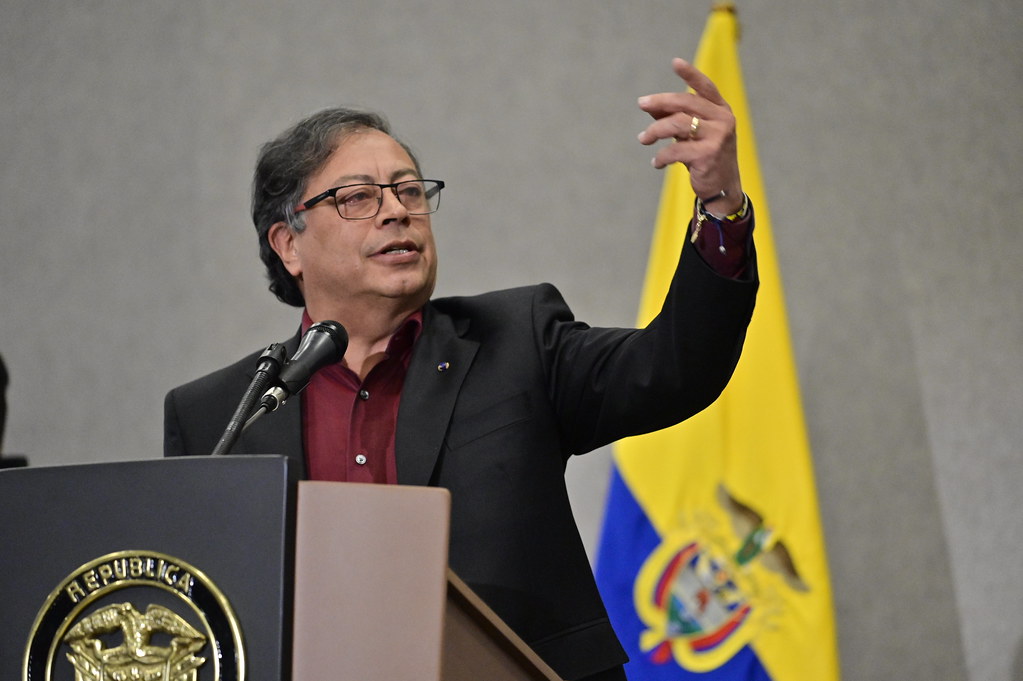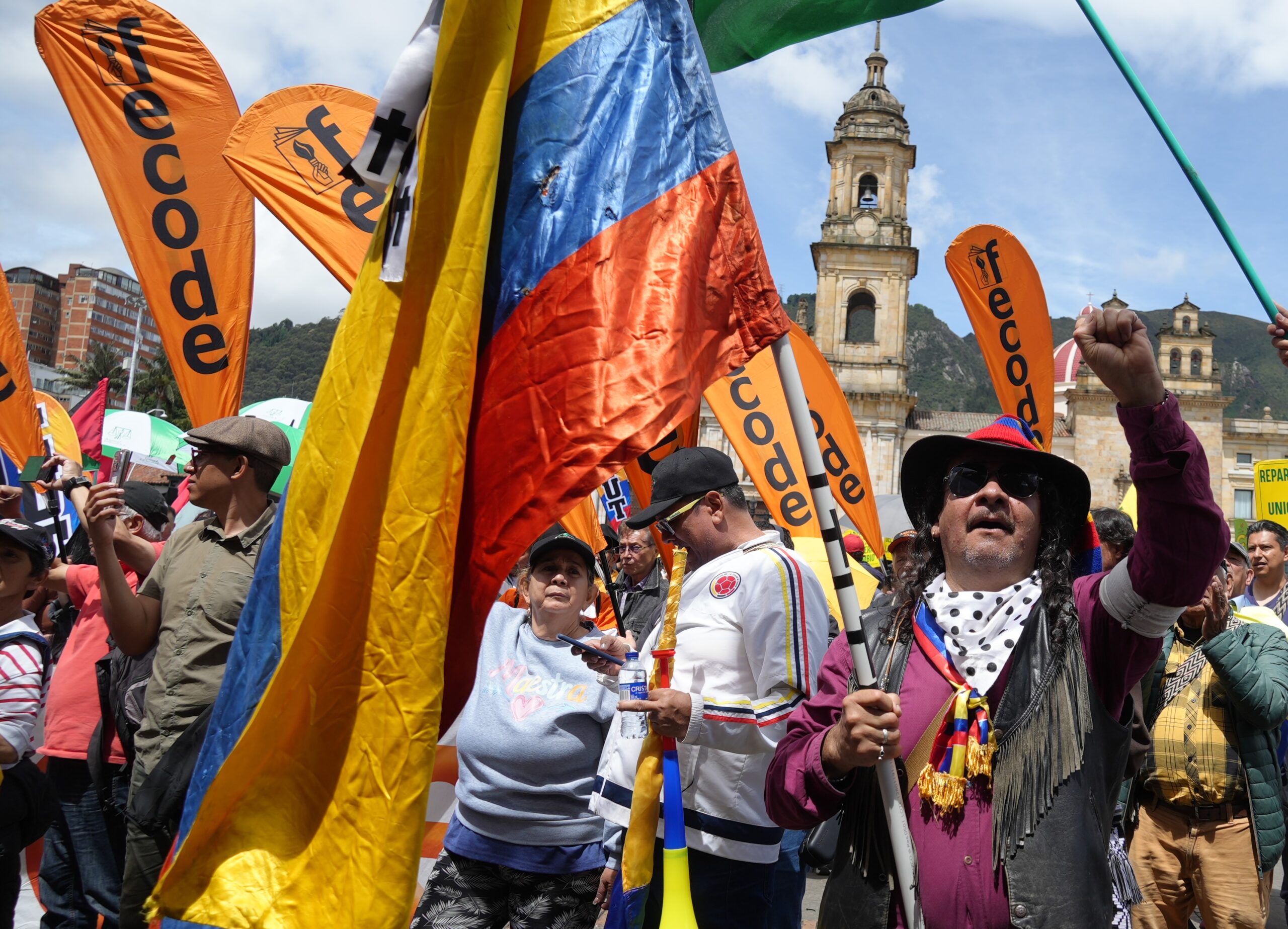Medellín, Colombia – Colombia’s Senate approved the country’s new labor reform on Tuesday, June 17, accepting the adjustments that President Gustavo Petro demanded in what the Ministry of Interior deemed as the leftist leader’s “greatest legacy.”
“This is a triumph for the working class, for women, men and young people who support the country with their efforts. Today, decent work returns. This is a historic legacy. What happened today has never happened in 100 years of Colombian labor history,” Interior Minister Armando Benedetti stated.
Similarly, Labor Minister Antonio Sanguino praised the “hard fight” that defenders of the reform had to endure, stating that the government is satisfied with the result especially following a thorough Senate deliberation process in which the reform’s articles were voted on independently.
The reform’s final approval came after months of intense debates and just three days before the constitutional deadline of June 20, 2025. The bill was first presented by then-Labor Minister Gloria Inés Ramírez in 2023, although it was rejected by a committee in the Chamber of Representatives.

Image source: Presidencia de la República de Colombia
In Colombia, reforms can be presented by the president, a minister, or lawmakers, and must be approved in four debates across the House of Representatives and the Senate. If the reform bill passes by majority in all debates, it must then be sanctioned by the president, although there are opportunities for reformulation and conciliation throughout the process.
Although the 2023 bill was archived during the first debate in the House of Representatives, the reform was ultimately revived by senator Angélica Lozano in 2025 under a different committee, as per Colombian newspaper La Silla Vacía.
On Wednesday night, however, representative María Fernanda Carrascal from Petro’s own Pacto Histórico (Historic Pact for Colombia) party, and who served as the bill’s spokesperson, announced that its conciliation period had come to an end, for which it would be submitted for presidential sanctioning.
“Of the 70 approved articles, 66 fully preserve the spirit of the draft we passed. Taking this outcome into account, along with the fact that some articles were even improved, the conciliators […] have decided to accept the text approved by the Senate,” Carrascal noted.

Image Source: Fotografía oficial de la presidencia de colombia via Flickr
Creative Commons Licenses
Beyond this, the passing of the labor reform has weakened President Petro’s plans of a popular referendum — a political strategy through which Colombian citizens would directly vote on the head of state’s flagship reforms, which was proposed in March following consecutive Congressional blocs, as per The Bogotá Post. On June 18, a court suspended Petro’s decree to call for a popular referendum.
What will change for Colombian workers?
Colombia is a signatory to the core International Labour Organization conventions, such as the Freedom of Association, Equal Remuneration, and Discrimination conventions. Despite these commitments, however, the country faces continuous challenges including a 58% prevalence of work informality, rural-urban separations which hinder labor law enforcement, and violence against unionists. According to the International Trade Union Confederation, Colombia is among the world’s most deadly countries for trade unionists, as 11 were killed between 2023 and 2024 alone.
If the country’s now-Senate-approved reform is signed into law, Colombian workers could see additional overtime pay, regulated working hours, more inclusive hiring processes, more regulation of informal work, and the improvement of employment conditions for delivery and remote workers.
As signaled by Senator Lozano, the reform poses a 7 p.m. start to night shifts — currently set at 9 p.m.– with an increased salary of $2,166 COP ($0.53 USD) per hour, permanent employment contracts becoming the norm, eight-hour workdays for domestic workers, and the guaranteed payment of the minimum wage for medical interns.

Image source: Angélica Lozano via X.
The bill also states that companies must hire at least two people with disabilities for every 100 employees, that labor conditions for platform workers — such as Uber drivers and Rappi deliverers — ought to be regulated via monthly work hour reports and their affiliation to social security, and that remote workers who earn less that two minimum wage salaries are to receive a $200,000 COP ($49.18 USD) connectivity stipend by their employers.
One of the more contentious points of the proposed policy is establishing paid leave for issues including family emergencies, medical appointments and parents’ attending their child’s school activities, as well as additional obligations rooted in labor inclusion. Luis Fernando Moreno, a professor specializing in labor law at The Catholic University of Colombia, explained that these changes may create administrative or financial burdens for employers.
José Manuel Restrepo, the Finance Minister in the previous administration of Iván Duque, expressed worries about the impact of the bill on Colombian businesses.
“The labor reform approved by the Senate is bad! Bad for generating formal employment, bad for reducing informality, bad for increasing productivity, and poor in dignifying the vast majority of the workforce who are informal or unemployed,” Restrepo noted on social media.
Even so, it is expected that President Petro will sign the reform into law by June 20, the last day of the current legislative session in Colombia. If he fails to do so, Senate President Efraín Cepeda can promulgate it.
Featured image credit:
Image: Unionist protest
Author: Colombian Federation of Education Workers (FECODE)
Source: FECODE via X











